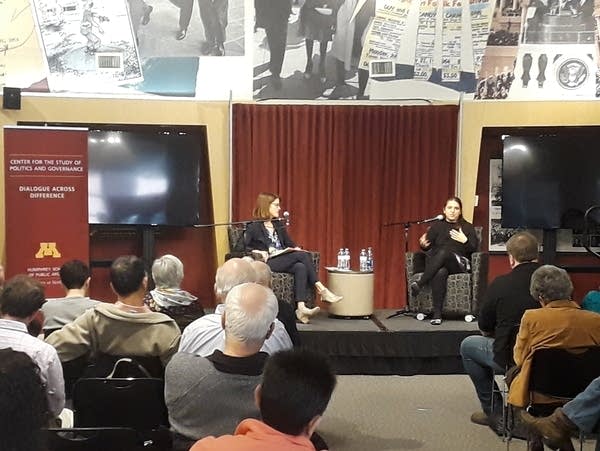Political scientists ask if the presidential nomination process is failing

University of Minnesota professor Kathryn Pearson on the left and Marquette University political science professor Julia Azari on the right speak at Humphrey School of Public Affairs on Monday, Feb. 24, about the presidential nomination process.
Mike Carri | Courtesy of Humphrey School of Public Affairs
Go Deeper.
Create an account or log in to save stories.
Like this?
Thanks for liking this story! We have added it to a list of your favorite stories.


